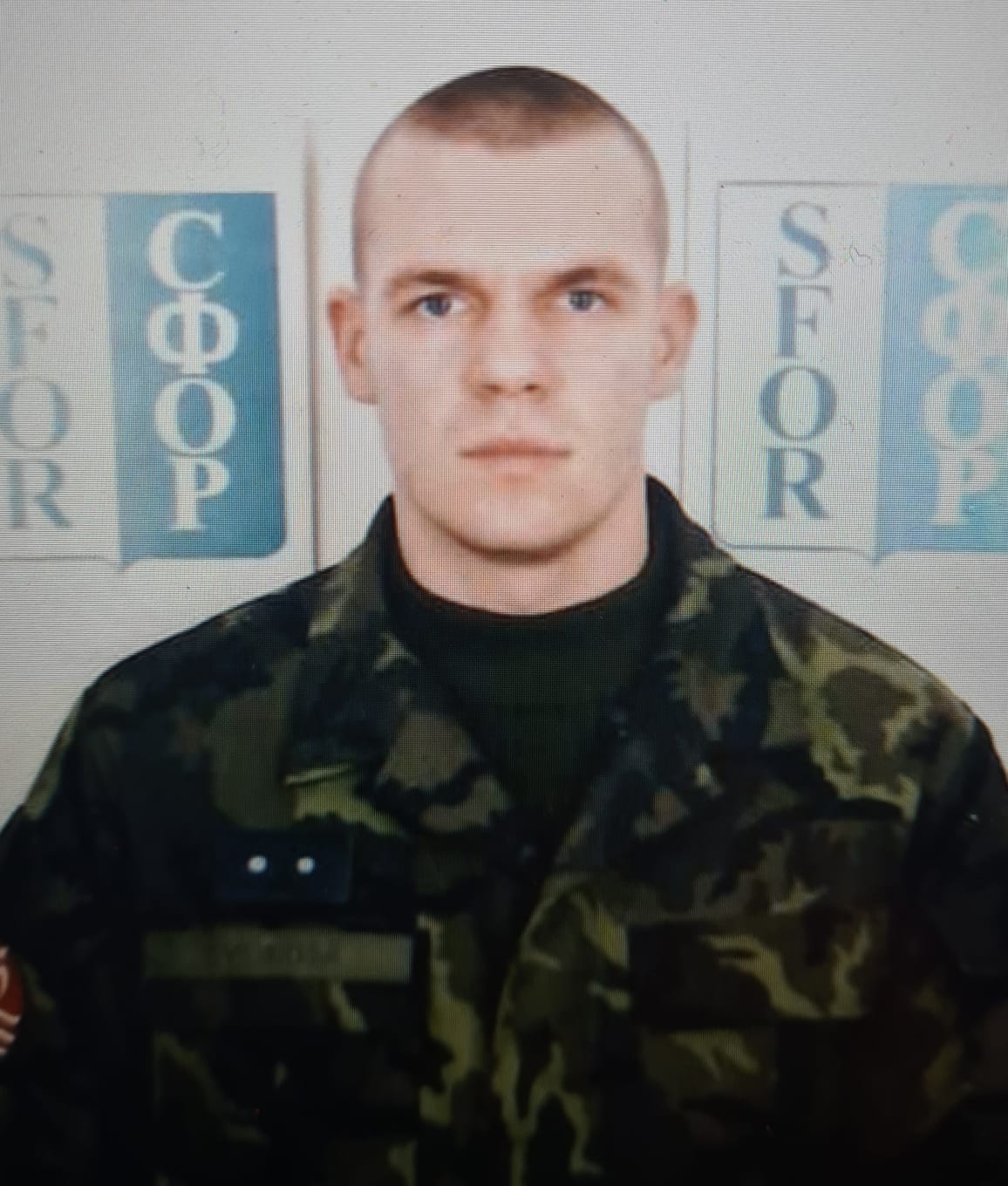There were mines everywhere. We were scared at first, but you get used to it

Stáhnout obrázek
Jan Svoboda was born on 6 May 1977 in Borovany, České Budějovice, where he grew up. In 1994 he trained as a cook and in 1996 he completed his basic military service in Český Krumlov. After the war, he worked at the Borges factory in his place of residence as a forklift driver. He then decided to go on a NATO-led peacekeeping military mission. After a successful recruitment and thorough training, he left for the military peacekeeping mission SFOR II in Bosnia and Herzegovina in March 1999. There he was assigned as a private soldier of the 3rd Mechanised Battalion of the Czech Contingent and was there for one full rotation until October 1999 at the Bosnian Krupa military base. During the mission, his unit participated in preventing attempts to disrupt the peace process in the country, monitored compliance with the Dayton Peace Agreement by ethnic armies, and performed guard duty. He participated in the security of specialists during the exhumation of a mass grave near the Omarska prison camp. After returning from his mission, he worked as a worker in the Borges factory from 1999 to 2002 and joined the Czech Police in August 2002. In 2017, he married Michaela Bohdalová, and they had two daughters. In 2023 he was living in Borovany.





















